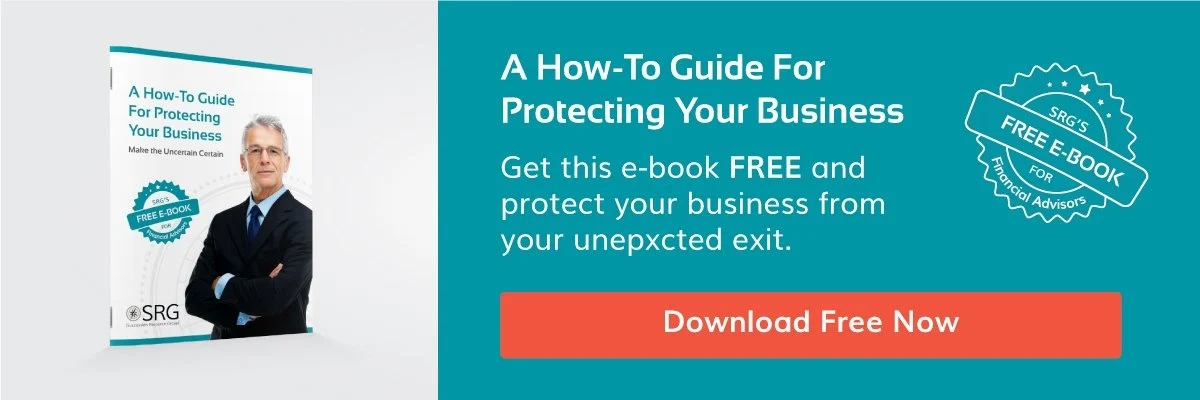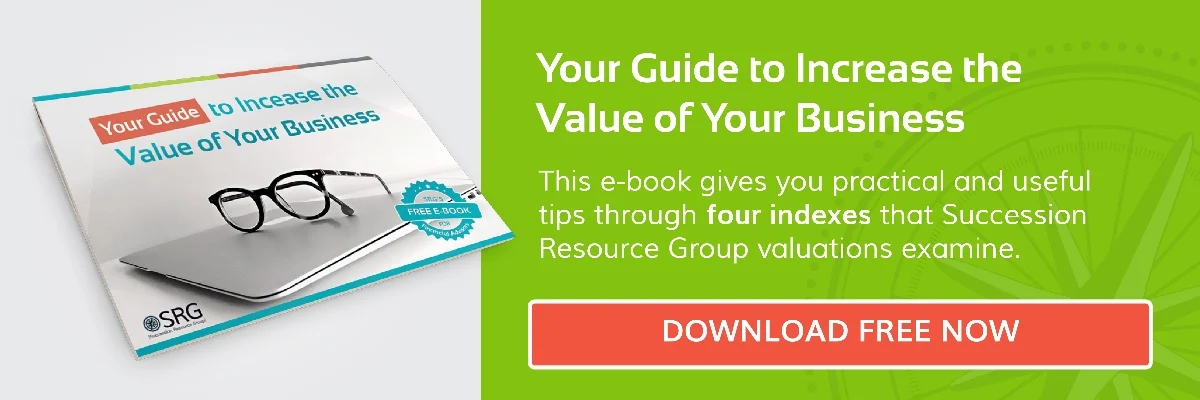What would happen to your business, your clients and the value of the company, if something where to happen to you suddenly? Do you have a plan and systems in place to ensure your business will carry on until you return? Or, a plan to ensure the business continues under someone else’s leadership if you cannot return?
These are questions small business owners should ask themselves and develop answers for. As a small business owner, much of your time and wealth is probably tied-up in your business, so having a plan to ensure you can extract the value for your family and that your business can continue is important. Life insurance and disability insurance (short or long-term) is a great place to start and can help protect your income, but it does not solve your family or estates question regarding what to do with the business in your absence. Unless someone in your family is already active in the industry and ready to step in, there is a good chance that the value of the business will effectively become zero if there is no written plan in place. Here are the steps and best practices for ensuring you have protected your business and its value, compliantly:
Step 1. Find the right party to back you up or to purchase the business should something happen. This person is often a peer/competitor, family member or someone within your organization (i.e., a junior partner).
- Make sure the person is capable of continuing to grow the business. The right person for that task today may not be your ultimate successor, and it doesn’t have to be.
- Find someone within the same broker-dealer network to ensure your successor can access client information compliantly. This should also allow clients to be moved to the new advisor under a “block transfer,” expediting the transition process.
- Find someone with similar licenses, business and investment philosophy.
Step 2. Create a bona fide agreement with your chosen party before something happens. This is a FINRA requirement per NASD IM-2420-2 for an unlicensed spouse or estate to receive payments involving securities revenue. Your agreement should contain:
- Timeline – who does what and by when.
- Define a valuation method (remember, your value is a moving target), even if you plan to transition the business to a family member for a token amount.
- Type of sale (stock sale, asset sale, etc.) and how the purchase price would be allocated for tax purposes.
- Payment terms for death, disability, or loss of license. Consider insurance to help fund all or a part of the buy-out.
- Many buyer/successors will want to split commissions or use an earn-out to fund a buy-out caused by death or disability. Based on current SEC no-action letters, most broker-dealers will either not allow an earn-out to an unlicensed spouse, or they will limit the maximum duration to five years assuming there was a bona fide agreement in place prior to something happening.
Step 3. Communicate the plan to all of your key stakeholders. Tell your clients, staff, family, CPA, and attorney. Make sure you have written communication to ensure that your wishes are made.
Step 4. Send a copy of your plan to your broker-dealer/custodian.
Step 5. Review/update your plan and valuation on an annual basis. This will help ensure that your plan is up-to-date, compliant, and applicable at all times should it ever be called upon in your absence. A documented track-record of your businesses value and performance will be invaluable should any questions arise and can help with a variety of business issues (obtaining insurance, securing business lines of credit, litigation/divorce support, employee ownership, etc.)




